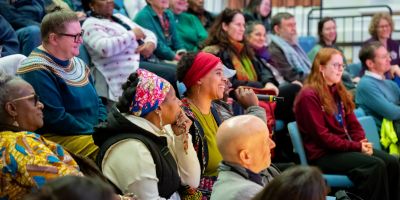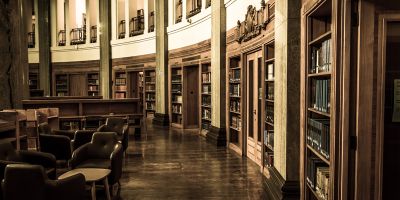The Moveable Feast - Public Space
The Moveable Feast is a programme of cross-disciplinary lunchtime talks organised by the LHRI in association with the Cultural Institute.
Over the course of the academic year, and under the banner of a common theme, speakers will give brief, accessible research talks in a School other than their own. The theme for the fourth series is Public Space.
Talks in this series, which all commence at 1pm, are as follows:
8 November - Heritage: Restaging the Political Dynamics of Commons and Publics - Helen Graham (FAHACS)
Venue: Turberville Foyer, School of History, 3rd floor Michael Sadler Building
Abstract: Heritage evokes complex forms of property, ownership and access. In this talk, Helen will trace the histories of the emergence of heritage in England as ‘public’, a political imaginary wrought from the transformation of commoners rights. The talk – drawing on a recent participatory action research project - will conclude by imagining a different staging of public logics and common rights for contemporary heritage practice and for local democracy and place-making more generally.
-----------------------------------------------------------------
23 November - Medieval Monasteries as Public Spaces - Emilia Jamroziak (IMS/History)
Venue: Clothworkers Foyer, School of Music
Abstract: Were the spaces of medieval monasteries public at all? Who was allowed to enter and why? What was the meaning of different spaces within monastery? This talk will introduce the audience to the key spaces of medieval monastery and process of the ‘production of space’ using example of medieval European female and male monastic houses.
View a recording of Emilia's talk here.
-----------------------------------------------------------------
13 December - Locating Muslims in Britain: Spaces, Publics and Social Realities - Sean McLoughlin (PRHS)
Venue: LHRI - Seminar Room 1
Abstract: Much research on Muslims in Europe focuses on public spaces and relations with the state and civil society. However, I will argue that for a more complex and complete account of social reality, such work must be juxtaposed firstly with research on diasporic public spaces associated with local/translocal Muslim communities, and secondly with everyday lived Muslim spaces.
Sean's talk can be viewed here.
-----------------------------------------------------------------
7 February - Audiences at Live Music Events - Karen Burland (Music)
Venue: Alumni Room, School of English
Abstract: This talk considers what it means to be an audience member in a diverse range of musical contexts. While a classical music enthusiast’s behaviour may be unrecognisable to an ardent pop fan, a meta-analysis of audience engagement presents similarities that are informative for concert promoters, musicians and researchers across arts and social disciplines. Using case studies of jazz, free improvisation and live coding audiences, the paper considers how audiences make decisions about which events to attend, what they take from the experience, and how they continue their musical engagement after the event.
The experience of being an audience member is, for many, extremely personal, whilst for others the social benefits of attending live music events are more important; the immediate, often emotional, impact of experiencing live music ‘in context’ distinguishes that experience from recorded performances and offers something special that cannot be replicated elsewhere. A sense of connection with the venue, performers and other audience members leads in many cases to committed attendance and a greater understanding of these experiences may help to secure the future of live performance events.
View a recording of Karen's talk here.
-----------------------------------------------------------------
22 February - Seaside Spaces: Painting, Poetry and Memory at the Humberston Coast - Judith Tucker (Design)
Venue: LCS Foyer (outside Spanish), 2nd floor Michael Sadler Building
Abstract: The Fitties plotlands at Humberston lie behind marshy beach and dunes: a quirky domestication of land protected by raised banks from the threat of tidal surges. Here, since between the wars, local people and visitors have erected their diverse dwellings with individualistic names and styles, in order to enjoy the simple, restorative pleasures of seaside life. Drawing on a recent creative and collaborative practice–led research project based in the Fitties, this talk will consider how the relation of public to private spaces in such places can figure in artistic responses and vice versa.
View a recording of Judith's talk here
-----------------------------------------------------------------
7 March - Communicating the City - Giorgia Aiello (Media & Communication)
Venue: PRHS Foyer, ground floor Michael Sadler Building
Abstract: In the face of economic and cultural globalization, many have argued that we live an increasingly placeless world. However, as a growing number of cities compete for global attention, the spectacle of the city is more than ever a significant medium of communication in its own right. This talk focuses on how the urban built environment is visually represented and materially fashioned to communicate the city as ‘world-class’. With examples from Leeds, Seattle (USA), Bologna (Italy), and a number of second-tier cities competing for the title of European Capital of Culture, I discuss some of the ways in which these aesthetic agendas applied to urban form may ultimately exclude less profitable yet vital versions and visions of urban life.
-----------------------------------------------------------------
28 March - Semiotics of the Marketplace: Lessons from a Field Study in Kirkgate Market - Elisabetta Adami (Languages, Cultures & Societies)
Venue: LHRI - Seminar Room 1
Abstract: For the semiotician no less than for the consumer, Kirkgate Market in Leeds is a marvel of diversity, offering a unique freedom for agency in public sign-making "from below," in sharp contrast to the corporate-led, professionally designed aesthetic of so many of today's public urban landscapes. Drawing on field studies conducted as part of a 2015-6 Sadler Seminar by the interdisciplinary Leeds Voices project, this talk will introduce some of the methodological as well as practical and even political lessons being learned from the semiotic study of social interactions in Kirkgate Market. The talk will dwell especially on an innovative feature of this study: the analysis of human communication as taking place in many different modalities at the same time.
-----------------------------------------------------------------
25 April - The Holocaust and Public Space: From the Physical to the Digital - Matt Boswell (English)
Venue: Stage@Leeds Foyer
Abstract: In this talk I will discuss my current project on 'Virtual Holocaust Memory', considering the ways in which new digital technologies are opening up innovative spaces for historical memory which are quite distinct from physical museums and memorial sites. In particular, I will consider the new forms of social and historical interaction that characterise these immersive digital environments, asking how this might alter public perceptions of the Holocaust.
-----------------------------------------------------------------
9 May - Mountains in Performance/Performing Mountains - Jonathan Pitches (Performance & Cultural Industries)
Venue: Seminar Room 1.17, Clothworkers Building North (Media & Communications)
Abstract: How have Mountains been immortalised in written drama? How have they been exploited as sites for theatre and performance? And how do mountains, themselves, perform? This short talk will share the first findings of an AHRC funded Leadership Fellows project, entitled Performing Landscapes: Mountains which seeks to expand the field of Mountain studies to include live theatre and performance and to bring communities of climbers and hikers together with performance academics.
Download a copy of the series poster here.




